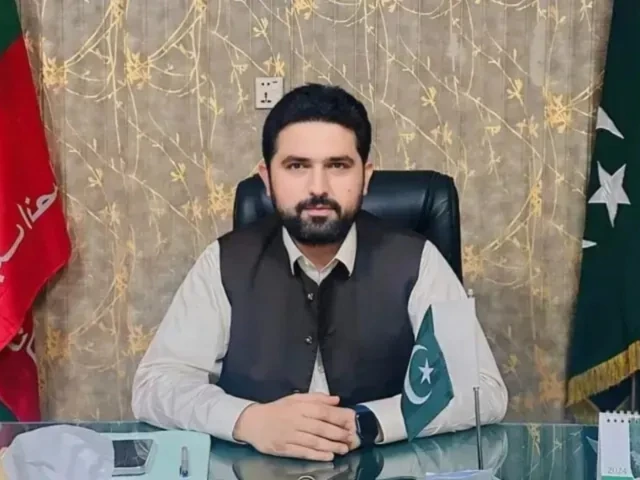KP CM commits to participating in NSC “for peace”; Rejects the allegations; Says all problems can be resolved through negotiation
Khyber-Pakhtunkhwa Chief Minister Muhammad Sohail Afridi. Photo: File
ISLAMABAD:
Khyber-Pakhtunkhwa Chief Minister Sohail Afridi appeared to calm political tension on Saturday, showing a shift from confrontation to cautious cooperation by assuring the PML-N-led federal government of his support “for the sake of peace”.
After weeks of bitter exchanges between the KP and the Centre, Afridi, who was appointed mid-term to keep the provincial ship stable last month, said he would attend national security forums to champion the KP’s cause.
“I will attend a meeting of the National Security Committee,” he said, adding that he would participate in any Centre-led forum to “defend” provincial rights.
Afridi pointed out that the deterioration of the security landscape in KP leaves little room for political grandstanding.
“Terrorism has affected all sectors of Khyber-Pakhtunkhwa. Anyone who martyrs our soldiers is a terrorist,” he said, adding that there would be no compromise on law and order.
His remarks come at a time when KP remains the country’s frontline province in the fight against militancy, and the PTI-led provincial government has repeatedly expressed reservations over counter-terrorism operations without local consensus and dialogue.
On Saturday, the chief minister also dismissed allegations that the PTI had resettled militants. “The accusation that PTI brought back militants is false.”
As a democratically elected chief minister, he said dialogue remained his top priority. “Every problem finds a solution through negotiation.”
Moreover, he dismissed speculations that he had indirect contacts with the establishment regarding the release of PTI founder Imran Khan, saying “Imran Khan will definitely be released”.
Addressing bureau chiefs, defense journalists and senior journalists, Afridi stressed that while KP’s difficulties were real and deep, their solutions lay in negotiations, stronger governance and more effective institutional performance.
Afridi said the KP Police had all the necessary capabilities to combat terrorism, adding that approval had already been given for procurement of modern equipment. The resources of the Counter-Terrorism Department (CTD) and the Special Branch have been increased, while recruitment criteria in the merged districts have been relaxed to increase the manpower.
Expressing concern over delays in the supply of bulletproof vehicles, he said: “We must eliminate terrorism at all costs, but we do not want collateral damage.”
He expressed strong reservations over the federal government’s unfulfilled commitments, saying KP’s unpaid dues had now reached nearly Rs 3,000 billion.
He said the merged districts had not been fully integrated even though the KP government had provided Rs 12 billion from its own resources to support them, including Rs 2.5 billion for the displaced tribals.
Meanwhile, he said, the federal government has failed to fulfill its promise of Rs35 billion.
He added that he also welcomed the federal audit of KP’s finances. However, he said the center also had to release the province’s contributions.
He warned that due to terrorism and economic pressures, poverty in the tribal districts had worsened. “If households were promised Rs 400,000 in compensation and it was never delivered, how will their confidence be restored?”
Condemning the recent attacks in Wana and Islamabad, Afridi said the police chief had been ordered to fully support operations in Wana. He also revealed that his attempts to establish high-level contacts in Islamabad went unanswered.
Commenting on relations with Afghanistan, he said he would deliver a strong message to Kabul: “We are Pashtuns and Muslims, but let’s stop the attacks.”
He added that if Afghanistan does not cooperate, “we will also have a justification.”
Reaffirming his loyalty to the federation, Afridi said, “Our life and death is with Pakistan. Pakistan is ours and we are of Pakistan.”
He added that strong institutions were the key to a strong country and that despite reservations on certain policies, the way forward lay in dialogue and better policy-making.




